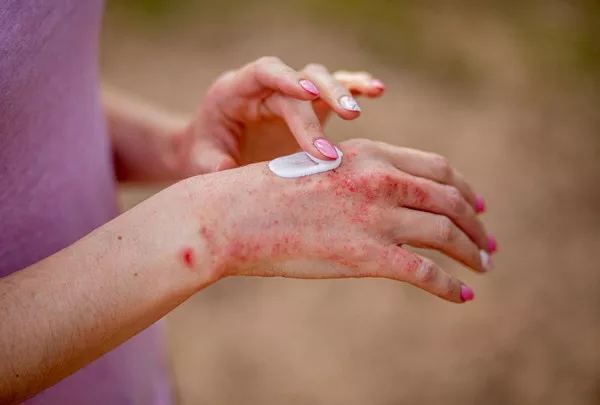Eczema, a chronic skin condition characterized by inflammation and irritation, often manifests with various symptoms that can greatly impact an individual’s quality of life. One common and noticeable symptom is flaking of the skin. Flaking in eczema refers to the shedding of dry, dead skin cells from the surface of affected areas. This article explores the underlying causes of eczema flaking, its implications, and strategies for managing this aspect of the condition.
What is Eczema?
Eczema, also known as atopic dermatitis, is a condition that causes the skin to become inflamed, itchy, and red. It can affect people of all ages, but it often begins in infancy and early childhood. Eczema is characterized by periods of flare-ups and remissions, with symptoms varying in severity from mild discomfort to significant impairment of daily activities.
The exact cause of eczema is not fully understood, but it is believed to involve a combination of genetic, environmental, and immune system factors. People with eczema tend to have an over-reactive immune response to certain triggers, leading to inflammation and skin barrier dysfunction.
Understanding Eczema Flaking
Flaking in eczema occurs due to the compromised skin barrier and excessive dryness commonly associated with the condition. When the skin’s protective barrier is weakened, it loses moisture more quickly, leading to dryness and scaling. Flaking often occurs in areas where the skin is most affected by eczema, such as the hands, face, elbows, and knees.
The process of flaking involves the shedding of dead skin cells from the skin’s surface. In individuals with eczema, this shedding can be more pronounced due to the skin’s impaired ability to retain moisture and regulate cell turnover. As a result, the skin may appear rough, scaly, and visibly flaky.
Causes of Eczema Flaking
Several factors contribute to the flaking observed in eczema:
1. Skin Barrier Dysfunction: Eczema is associated with a weakened skin barrier, allowing moisture to escape more easily and making the skin prone to dryness and flaking.
2. Dry Skin (Xerosis): People with eczema often experience xerosis, or abnormally dry skin, which contributes to the formation of flakes.
3. Inflammation: Persistent inflammation in eczematous skin disrupts normal skin cell turnover, leading to an accumulation of dead skin cells that shed more rapidly.
4. Scratching and Rubbing: The urge to scratch affected areas due to itchiness can exacerbate skin irritation and promote flaking.
Symptoms of Eczema Flaking
Flaking is just one of the visible symptoms of eczema. Other symptoms that may accompany flaking include:
- Intense itching
- Red or inflamed skin
- Thickened or leathery skin (lichenification)
- Cracked or weeping skin
- Small, raised bumps (papules) that may ooze or crust over
Managing Eczema Flaking
Managing eczema flaking involves a multifaceted approach aimed at restoring the skin barrier, reducing inflammation, and preventing further dryness. Here are some strategies that can help alleviate flaking:
1. Moisturization: Regular and frequent application of emollients or moisturizers is essential to hydrate the skin and prevent excessive dryness and flaking. Choose products that are fragrance-free and specifically formulated for sensitive skin.
2. Topical Corticosteroids: These medications are commonly prescribed to reduce inflammation and relieve itching. They can help control eczema flares and minimize flaking.
3. Topical Calcineurin Inhibitors: Another class of medications that can be used to reduce inflammation and improve skin barrier function.
Avoiding Triggers: Identify and avoid triggers that exacerbate eczema symptoms, such as certain fabrics, harsh soaps or detergents, and environmental allergens.
4. Humidification: Using a humidifier in dry indoor environments can help maintain optimal moisture levels in the air, which can benefit the skin.
5. Gentle Skincare Practices: Use mild, fragrance-free cleansers and avoid hot showers or baths, which can strip the skin of its natural oils.
6. Prescription Treatments: In severe cases, oral medications or phototherapy (light therapy) may be recommended by a dermatologist to manage eczema symptoms, including flaking.
Conclusion
Flaking in eczema is a common and visible manifestation of the condition, often accompanied by itching and skin irritation. Understanding the underlying causes of eczema flaking is crucial for implementing effective management strategies. By addressing skin dryness, inflammation, and maintaining a healthy skin barrier, individuals with eczema can reduce flaking and improve overall skin health. Consultation with a dermatologist is recommended for personalized treatment plans tailored to individual needs, ensuring optimal management of eczema and its associated symptoms.
Related Topics:
What Supplements to Take for Eczema

























